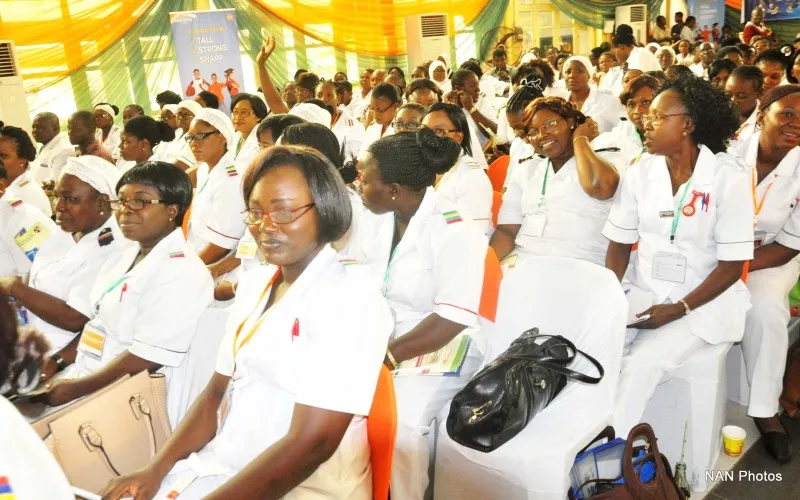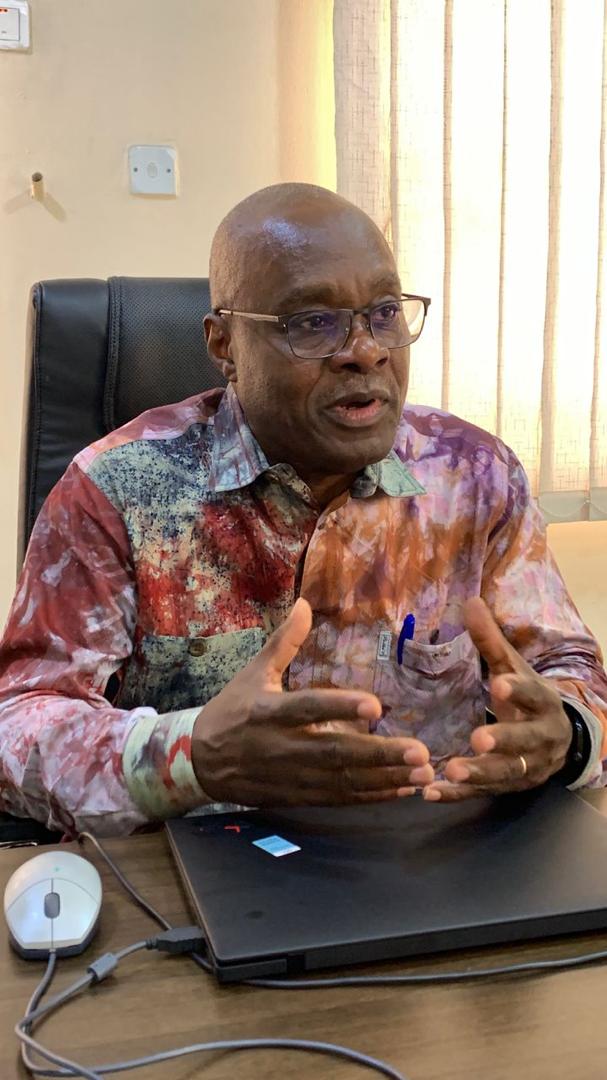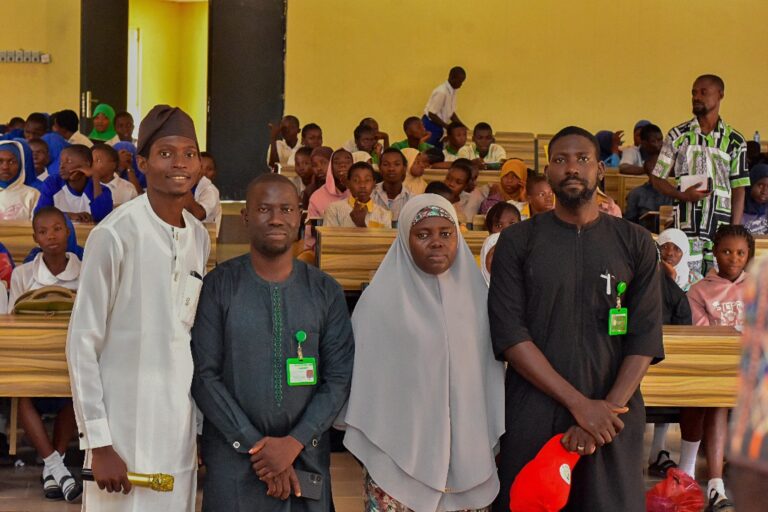
Healthcare services across Nigeria face major disruption from today (Wednesday) as 25,000 nurses, under the umbrella of the National Association of Nigeria Nurses and Midwives (NANNM), Federal Health Institutions Sector, embark on a seven-day nationwide warning strike.
The action, which began at midnight, followed the expiration of a 15-day ultimatum issued by NANNM to the federal government.
This is coming amid the faceoff between doctors and the government over welfare and other issues.
Speaking on Monday, the National Chairman of NANNM-FHI, Morakinyo Rilwan, said the strike would involve a total withdrawal of services across all federal health institutions.
“The 15-day ultimatum ends by Tuesday, July 29, 2025, by midnight, and the warning strike commences on Wednesday, July 30, 2025, at 12.01am.
“The action would include 74 federal hospitals – teaching hospitals, federal medical centres, specialist hospitals like orthopaedic, neuro-psychiatric, and eye centres, as well as all general hospitals and primary healthcare centres in the 36 states and the Federal Capital Territory, and 774 local government areas.
“Private hospitals are not included. This is because for now the private practitioner nurses are not spread over Nigeria,” he said.
According to him, the strike was in response to issues which include poor remuneration, staff shortages, unpaid allowances, and unsafe working conditions.
On July 14, 2025, the union issued a 15-day ultimatum to the federal government, demanding immediate intervention to prevent a total healthcare shutdown.
Rilwan noted that despite the ultimatum, the federal government had not initiated any negotiations.
Rilwan said the strike became necessary after the federal government and the Federal Ministry of Health failed to respond meaningfully to its July 14 ultimatum.
“Since the 15-day ultimatum was given, there has been no invitation by the federal government or federal ministry of health. So, it is imminent that the strike will take place and it is going to be a total of seven days in all federal institutions, secondary and primary health care in Nigeria,” he said.
He said the decision was aimed at drawing urgent attention to the critical issues affecting nurses nationwide.
“The strike is a follow-up to the ultimatum given to the federal government through the federal ministry of health on the 14th July 2025 and this is as a result of our unmet demands,” he said.
The organisation’s demands include gazetting of the nurses scheme of service approved by the NCE in 2016 in Minna, Niger State, implementation of the National Industrial Arbitration Court (NIC) judgment of January 27, 2012, upward review of professional allowance for nurses and midwives, and employment of nursing personnel and adequate provision of health facility equipment.
Other demands include creation of a department of nursing in the federal ministry of health, inclusion of nurses in the headship of the health policy-making body, a fair representation by the association on the board and membership in federal health institutions, centralisation of internship posting for graduate nurses, and consultancy for nurses and midwives.
The association is also demanding the withdrawal of the content of the recently released circular on revised allowances for health workers (Nurses).
Rilwan said: “We want the government to employ more nurses because of the Japa syndrome. Those of us on ground working are not ready to travel out. The workload on us is too much, that’s why we want the government to employ more nurses.
“But the government is actually embarking on this propaganda that there are no nurses in Nigeria, we have enough nurses in Nigeria. In fact, the majority of them are working in private hospitals where they are being paid peanuts and we want the government to employ them so that the work load on us will be reduced.
“For now, based on the data collected from the association, we have about 10,000 nurses that are unemployed.
“Talking about our shift allowance which presently the circular on ground actually stipulated 30 percent basic, what we have been receiving since 2009 is about 8.6 percent as against 30 percent of our basic, so we want this to be implemented. We want a 200 percent increment over all allowances including allowances to nurses and call duty allowance.
“We want nurses to be included in policy making. As the largest health professional in the health sector, we hardly participate where decisions on the health system are being taken.”
Asked the last time nurses went on strike, he said: “Nurses alone have not gone on any strike in Nigeria for the past 40 years. Nurses went on strike last in 1984 and then some consensus was reached that made them suspend the strike at that time.
“We’ve been appealing to the government not to let us reach the situation where we are going to go on strike but the government has remained adamant. After the seven days warning strike, if nothing tangible comes from the government, we are going to give a 21-day ultimatum according to labour law before we embark on an indefinite strike.
“The government is not serious because they don’t consider the masses. They can easily travel abroad so they don’t bother what happens to the poor masses, that is why they are being insensitive.”
Rilwan, who described the warning strike as a “total shutdown”, said there would be no services, including emergencies.
“There will not be emergency services, the strike is a total shutdown, and there will be no skeletal services,” he said.
He listed the services to be affected to include operating theatres; Intensive Care Units (ICUs), labour wards; anaesthesia; accident and emergency; and general outpatient clinics.
Others are special care baby units; all specialty clinics (for example ophthalmic, dialysis, orthopedic, neuropsychiatric, antenatal, oncology clinic, fertility clinic, etc); all in-patient admission wards; and central sterile supply units.
The NANNM’s seven-day warning strike coincided with the ongoing three-day warning strike embarked upon by doctors in Lagos under the Medical Guild, which started on Monday.
Daily Trust had reported that the Guild, representing doctors employed by the state government, accused the government of “illegal and disrespectful” deductions from their July salaries and the non-payment of 12 months’ arrears owed to honorary consultants under the Consolidated Medical Salary Structure (CONMESS).
Already, the doctors’ strike has left a sore taste in the mouths of patients, leaving them stranded as they were reportedly told to return home, while several departments appeared deserted.
In an interview, Toba Odumosu, the State Secretary for the Lagos State Council of NANNM, expressed displeasure over the condition of health workers, describing the strikes as coincidental.
He reiterated that the decision to embark on a seven-day warning strike followed the expiration of a 15-day ultimatum issued to the federal government over improved welfare, fair allowances, and better working conditions for nurses.
He added that the negotiation with the federal government through the Ministry of Labour on Tuesday ended in a deadlock.
A medical practitioner, Rukayat Hassan, said it was a slap on the government’s face that doctors and nurses are in a battle with the federal government at the same time.
“Honestly, to me, it is not fair at all. The government and bodies need to look into the issues carefully because I believe health is key. It is a slap on the face of the government that they cannot resolve these issues bedeviling the health sector.
“It is high time they started to consider the masses. I just can’t imagine what would happen in hospitals affected from Wednesday when there is an emergency. Private hospitals are quite expensive,” she said.
Another medical practitioner, Adeniyi Kolawole, also corroborated Hassan’s stance.
He said: “The government has no reason whatsoever not to heed to the demands of the nurses. Anyway, it’s not surprising as top government officials through tax payers’ money travel abroad for treatment when need be.
“It’s going to be disastrous if the government let this happen. Many of these nurses cannot even afford the food they eat, the clothes they wear, or the medicine they need.”
While urging the government to take decisive action, a practicing nurse, Oyekanmi Blessing, said: “Our only crime is staying in Nigeria to care for Nigerians. My colleagues serving as nurses in Saudi Arabia are treated with respect, honour and dignity.”
When contacted, the Head, Information & Public Relations at the Ministry of Health and Social Welfare, Alaba Balogun, requested a WhatsApp message.
But he had yet to respond to the message as at the time of filing this report last night.
(Daily Trust)


